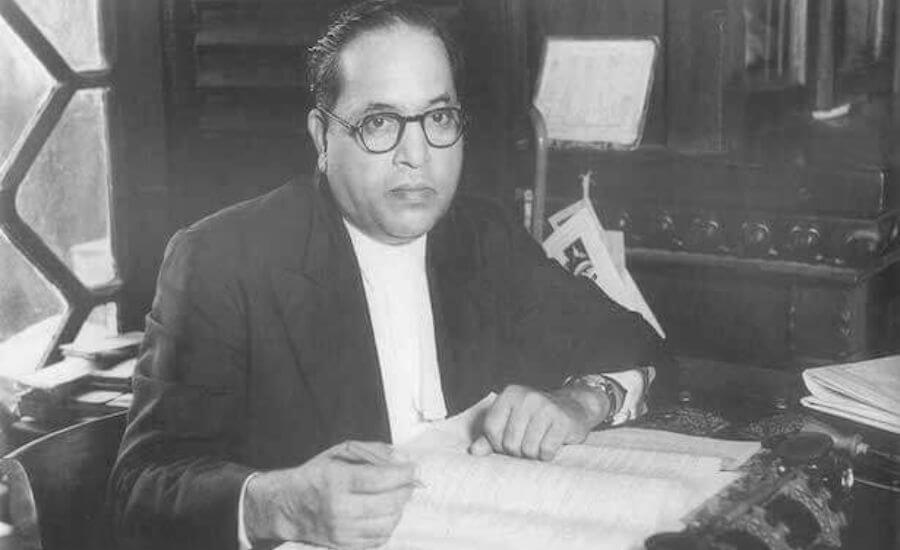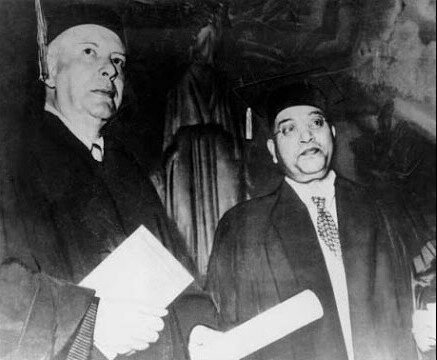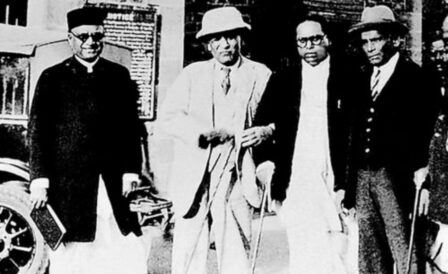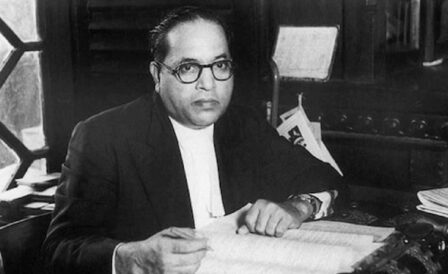
In recent times, we have seen an explosion of interest from scholars and writers in B.R. Ambedkar’s life. This is not only because of his continuing relevance to Indian society and politics, but also the remarkable diversity of his achievements, interests and influence.
One such recent attempt is Scott Stroud’s The Evolution of Pragmatism in India, described as an intellectual biography of Ambedkar, which carefully explores the influence of philosopher John Dewey and his pragmatic philosophy on Ambedkar. During his studies in Columbia University from 1913-16, Ambedkar took two year-long courses under Dewey which had an everlasting impact on him. In a letter to his wife, he once described Dewey as a “wonderful man” who he owed his intellectual life to.
While several scholars have noted this fact and the traces of Deweyan themes in Ambedkar’s philosophy, Stroud is the first to delve deep to deliver a detailed and textured account of Dewey’s influence on a young Ambedkar and his subsequent career. In this blog, we focus on one strand of this influence: Dewey’s ideas of social forces and the role of the individual in effecting social change.
Dewey viewed society as a resultant of forces that push or pull in various directions. The customs and norms that define morality for a society exert a stabilising force on any deviant behaviour. In such a seemingly static situation, progress occurs through a conscious re-thinking of societal norms and a reconstruction of past tradition. Here, the individual can play a significant role as the innovating ‘force’ which initiates this reconstruction.
Stroud posits that Ambedkar clearly saw himself as such an individual, with the intellectual capacity to initiate a change. The challenge before Ambedkar was, how to play the role of this innovating ‘force’ and initiate social change in a deeply hierarchical society.
Stroud’s analysis of key texts such as Annihilation of Caste and speeches such as Ambedkar’s testimony before the Southborough Commission reveals how Ambedkar employed what he terms ‘reconstructive rhetoric’ in his political and social interventions. This involved carefully designing his speech or writing to speak to a particular audience, whether that of educated upper castes or ordinary working-class folk.

The Constituent Assembly Debates also offer us a good example of Ambedkar’s skilful use of rhetoric, designed to provoke or inspire as the need be. While debating the federal structure of India, he castigated the village as “a den of ignorance, narrow mindedness and communalism.” This created a fierce uproar in the Assembly among the votaries of decentralisation, but ultimately the Constitution settled upon a two-tier federal structure. On another occasion, he referred to Article 32 as “the very soul of the Constitution and the very heart of it”, declaring it to be the most important article in the Constitution.
In his final speech in the Assembly, he put forward the challenges to be faced in working the Constitution in no uncertain terms:
“On the 26th of January 1950, we are going to enter into a life of contradictions. In politics we will have equality and in social and economic life we will have inequality… We must remove this contradiction at the earliest possible moment or else those who suffer from inequality will blow up the structure of political democracy which this Assembly has so laboriously built up.”
Stroud’s work allows us to see these speeches as instances of reconstructive rhetoric crafted carefully to prod the Assembly towards desirable social goals.
Comments
Leave a Reply
More blog posts

Why did B.R. Ambedkar Accept the Poona Pact?
19 December 2022 • By Siddharth Jha
What were the reasons behind Ambedkar accepting the Poona Pact despite the lack of inclusion of separate electorates within its provisions?

B.R. Ambedkar’s Justification To Restrict Fundamental Rights
10 December 2021 • By Meenakshi Ramkumar
B.R Ambedkar was faced with criticism from his Constituent Assembly colleagues: why were there restrictions on Fundamental Rights in the Draft Constitution?

Thank you for the thoughtful write up. There’s so much to discover in terms of Ambedkar’s political thought. If readers in India want to read my book, there’s a cheaper HarperCollins India edition available in south Asia: https://www.amazon.in/dp/9356991103